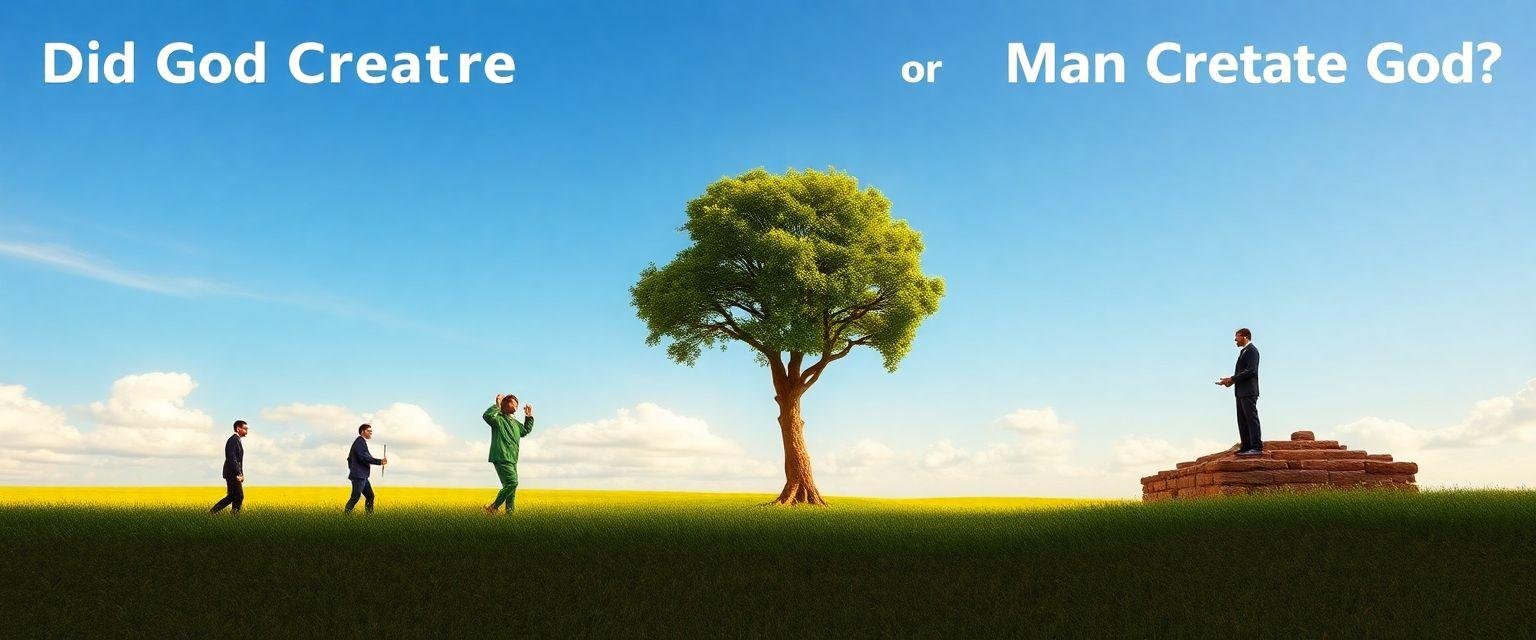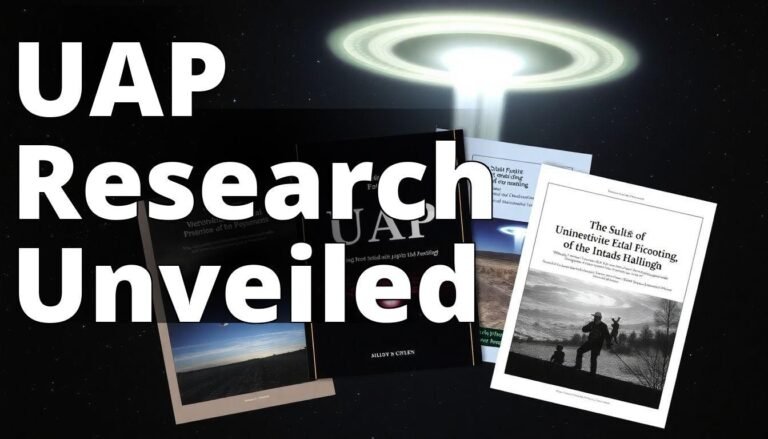Did God Create Man, or Man Create God?
The age-old question of whether God created man or man created God has been debated for centuries. It is a topic that sits at the intersection of science, religion, and philosophy. The complexity of this question lies not only in its theological implications but also in its scientific exploration. As we delve into the evolution of man, we must consider how these domains influence one another and how they shape our understanding of existence.
Understanding Creation and Belief
Explore the intriguing relationship between science, religion, and the origins of humanity.
– Learn about how the evolution of religion has shaped human belief systems and concepts of divinity over time.
– Discover the scientific perspectives on human evolution and how these ideas challenge traditional notions of creation.
– Understand the development of morality and the soul, and how these concepts influence our perception of God and humanity’s role.
The Evolution of Religion
Religion has evolved alongside humanity, adapting to cultural, social, and intellectual changes. It’s fascinating to consider that early forms of religion were not based on dogmatic beliefs but rather on understanding the natural world. The earliest humans saw divinity in nature, a concept known as animism, which attributed a spiritual essence to animals, plants, and even inanimate objects. This belief system can be seen as the precursor to more structured religions.

As societies evolved, so did their religious structures. The transition from polytheism to monotheism marked a significant shift. Monotheistic religions, like Judaism, Christianity, and Islam, provided a framework for understanding the universe and humanity’s place within it. This evolution parallels the development of human society from small, nomadic groups to large, agricultural civilizations. Religion became institutionalized, offering moral codes and social cohesion.
Insider Tip: Dr. Karen Armstrong, a religious scholar, suggests that religion’s evolution mirrors human evolution, constantly adapting to meet the existential needs of society.
Thought-Provoking Question: Could the development of religion be more about understanding and coping with the human condition than about divine truth?
For more on the evolution of religion, check out this article by Britannica.
The Evolution of God
The concept of God has not remained static throughout history. Depictions of deities have transformed from anthropomorphic figures in ancient mythologies to the abstract, omnipotent being of modern monotheistic faiths. This evolution reflects humanity’s growing understanding of the universe and the self.

In early civilizations, gods were often seen as rulers of the natural world, controlling the weather, fertility, and fortunes. These gods were relatable and had human-like qualities. As human societies became more complex, so did their gods. The monotheistic view of God as a singular, all-powerful entity aligns with the rise of centralized political power and the need for a unifying social order.
Insider Tip: Theologian John Shelby Spong argues that our understanding of God must evolve to reflect the realities of the modern world, just as it has in the past.
Thought-Provoking Question: Is our current conception of God a reflection of our advanced understanding of science and the universe, or does it limit us from exploring new spiritual dimensions?
For further reading on the evolution of God, see this comprehensive study by The Atlantic.
The Evolution of Morality
Morality has been a cornerstone of religious teachings, yet it is deeply embedded in the evolution of human society itself. Early humans relied on cooperation and social bonds to survive, which laid the groundwork for moral behavior. Interestingly, research in evolutionary biology suggests that moral instincts are present in other primates, indicating that morality predates religion.

As communities grew, so did the complexity of their moral frameworks. Religions codified these values, offering ethical guidelines that aligned with the social and economic needs of their time. This codification served to reinforce social order and cohesion, which were essential for the survival of large groups.
Insider Tip: Evolutionary psychologist Dr. Jonathan Haidt emphasizes the idea that morality is an evolutionary adaptation that enhances group survival, not just a religious construct.
Thought-Provoking Question: If morality is an evolutionary trait, to what extent do we need religion to define right from wrong?
Explore more about morality’s evolution in this article by Scientific American.
The Evolution of the Soul
The soul, often considered the essence of humanity, is a concept that has evolved alongside religious and philosophical thought. In early animistic beliefs, the soul was not unique to humans but was a shared attribute with other living beings and natural phenomena. As religious beliefs became more sophisticated, the soul was increasingly viewed as a distinct and eternal aspect of human existence.

In many religious traditions, the soul is seen as the source of consciousness and identity, surviving beyond physical death. This belief provides comfort and a sense of purpose, reinforcing moral behavior and societal norms. Interestingly, modern science is beginning to explore consciousness through the lens of neuroscience, challenging traditional notions of the soul.
Insider Tip: Philosopher Daniel Dennett posits that consciousness and the concept of the soul can be explained through scientific principles, suggesting that the soul’s evolution is rooted in human cognitive development.
Thought-Provoking Question: As science delves deeper into consciousness, how might our understanding of the soul change, and what implications will this have for religious beliefs?
For more on the scientific exploration of the soul, visit this insightful review by Psychology Today.
The Evolution of Creation
The story of creation is central to many religions, detailing how the universe and humanity came to be. These narratives have evolved from mythical tales to more intricate theological doctrines. The Biblical account of creation, for instance, has been interpreted in various ways throughout history, reflecting the changing relationship between religion and science.

With the advent of modern science, particularly the theory of evolution and the Big Bang theory, the narrative of creation has been dramatically challenged and expanded. These scientific theories provide a framework for understanding the universe’s origins that does not rely on divine intervention, yet they do not necessarily negate the existence of a creator.
Insider Tip: Astrophysicist Neil deGrasse Tyson suggests that science and religion are not inherently at odds but can offer complementary perspectives on the nature of existence.
Thought-Provoking Question: Can the scientific and religious narratives of creation coexist, or are they fundamentally incompatible?
For further exploration of creation narratives, refer to this detailed analysis by National Geographic.
The Evolution of Man
The evolution of man is a testament to the power of natural selection and adaptation. From our earliest ancestors, the hominins, to Homo sapiens, the journey of human evolution is marked by significant biological and cultural milestones. The discovery of tools, the control of fire, and the development of language are just a few examples of how humans have evolved over millions of years.

These evolutionary advancements have not only shaped our physical form but have also influenced our cognitive and social development. The ability to think abstractly, create art, and form complex societies are unique traits that have defined humanity’s place in the natural world.
Insider Tip: Paleoanthropologist Richard Leakey highlights the importance of understanding human evolution as a continuous process, influenced by both genetic and environmental factors.
Thought-Provoking Question: How might our understanding of human evolution change as we uncover more about our ancient ancestors and future potential?
For a comprehensive overview of human evolution, see this informative guide by the Smithsonian.
The Evolution of You
In understanding the evolution of man, it is essential to reflect on personal evolution. Our beliefs, values, and identities are shaped by both genetic inheritance and environmental influences. Just as humanity has evolved, so too have individuals adapted to their surroundings, learning and growing throughout their lives.

Personal evolution is a lifelong journey, influenced by education, relationships, and experiences. It is a testament to the dynamic nature of human existence and the capacity for change. Embracing this evolution can lead to a more profound understanding of oneself and one’s place in the world.
Insider Tip: Psychologist Carol Dweck emphasizes the importance of a “growth mindset,” which fosters personal development and resilience in the face of challenges.
Thought-Provoking Question: In what ways can recognizing personal evolution enhance our understanding of humanity and our connection to the broader universe?
For insights into personal growth, consider this article by Harvard Business Review.
Conclusion
The evolution of man, religion, God, morality, the soul, and creation is a complex tapestry that intertwines science and faith. As we explore these concepts, it becomes clear that they are not mutually exclusive but are part of a larger narrative that seeks to explain the human experience. Through this exploration, we gain a deeper understanding of who we are, where we come from, and what we might become. The journey of evolution is ongoing, inviting us to question our beliefs, expand our knowledge, and embrace the mystery of existence.
For a broader exploration of these themes, visit our Thin White Lies sitemap to navigate related articles.







